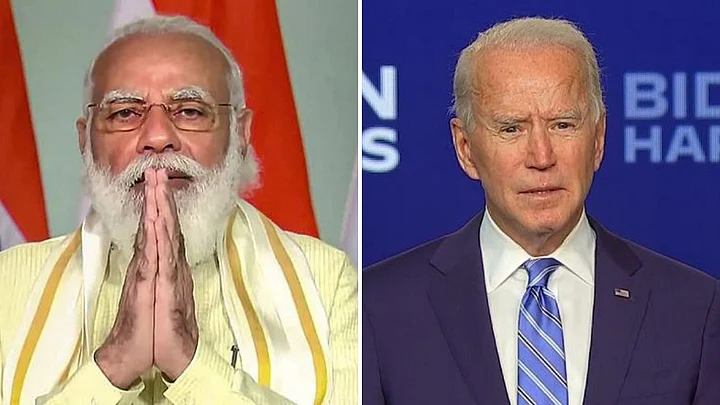The United States on Wednesday, 2 June, suspended the new tariffs for six months on a slew of Indian imports, hoping to find a multilateral solution on the issue of digital taxation introduced by India.
The decision comes after India introduced a digital tax for foreign companies selling goods and services online to customers in India and showing annual revenues more than Rs 2 crore in April 2020.
Here's how the tariff war escalated.
April, 2020
The digital tax was introduced in April 2020, stating that any foreign digital e-commerce companies including Amazon, Alibaba, Facebook, Google, Uber, etc, with annual revenues in excess of ₹2 crore, and who are not paying income tax in India will have to pay 2 percent equalisation levy.
June, 2020
The office of the United States Trade Representative (USTR) stated that such a levy was discriminatory to US commerce and is actionable under its law – Section 301, Trade Act of 1974.
Following this, USTR initiated investigations into India's digital tax laws. It is worth noting that USTR also initiated investigation in 9 other jurisdictions — Austria, Brazil, the Czech Republic, the European Union, Indonesia, Italy, Spain, Turkey, and the United Kingdom.
These countries also levied digital taxes on foreign companies selling digital goods and services .
November, 2020
The US Trade Representative requested consultations with the government of India regarding the issues involved in the investigation. Consultations were held on 5 November 2020.
Based on information obtained during the investigation, USTR prepared a comprehensive report on India’s digital tax which US says is discriminatory and burdens or restricts US commerce.
January, 2021
The Quint got hold of the findings of the investigation report. Here's what the USTR said in the report:
The law (Digital Service Tax) explicitly exempts Indian companies, while targeting non-Indian firms. The result is that US “non-resident” providers of digital services are taxed, while Indian providers of the same digital services to the same customers are not.
Indeed, one Indian government official confirmed that the very “purpose” of the DST is to discriminate against non-resident foreign companies, explaining that: “all parts of the digital taxation incident should be on the foreign player, because if the incidence is passed on to the Indian player, then it doesn’t really serve the purpose.”
What's more, the DST targets digital services, but not similar services provided nondigitally. Because US companies are global leaders in the digital services sector, US companies face an inordinate share of tax burden.
Indeed, of the 119 companies that USTR has identified as likely liable under the DST, 86 (72%) are US companies.
Based on the information obtained during the investigation, the US Trade Representative determined that India’s digital taxation laws are unreasonable and therefore, is actionable under sections 301(b) and 304(a) of the US Trade Act.
March, 2021
In retaliation, US proposed to impose retaliatory tariffs up to 25 percent on a wide range of Indian products from shrimps, basmati rice, to gold and silver items.
Some other items in the initial list of targeted products from India include bamboo products, cigarette paper, cultured pearls, precious or semi-precious stones, brassieres, jewellery and wood furniture.
The USTR stated that the value of the digital services tax payable by US-based company groups to India will be up to approximately $55 million per year, adding that the retaliatory tariffs could add up to the amount.
June, 2021
The US on Wednesday suspended the imposition of retaliatory tariffs against India, to lower the tension on trade issues for the next six months.
“The final determination in the investigations is to impose additional tariffs on certain goods from these countries, while suspending the tariffs for up to 180 days to provide additional time to complete the ongoing multilateral negotiations on international taxation at the OECD and in the G20 process,” the USTR said in a statement.
